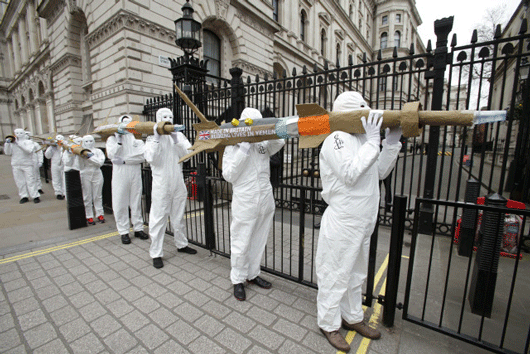
Local Editor
A report by the Saudi-led coalition’s Joint Incidents Assessment Team [JIAT] admitted responsibility on Saturday but blamed "wrong information" from allies of the Yemeni government.
"A party affiliated to the Yemeni Presidency of the General Chief of Staff wrongly passed information that there was a gathering of armed Ansarullah leaders in a known location in Sana’a, and insisted that the location be targeted immediately," investigators claimed in a statement.
More than 500 victims were also injured in the bombing, for which the Saudi military initially denied responsibility before launching a probe into the "regrettable and painful" attack.
The JIAT’s report claimed the Air Operation Centre in Yemen directed a "close air support mission" to target the funeral grand hall without approval from the coalition’s commanders, adding: "JIAT has found that because of non-compliance with coalition rules of engagement and procedures, and the issuing of incorrect information, a coalition aircraft wrongly targeted the location resulting in civilian deaths and injuries."
Investigators called for a review of the rules of engagement and for compensation for families of the victims, who had gathered to mourn the death of the father of interior minister Jalal al-Rowaishan.
Welcoming the report, the Foreign and Commonwealth Office said it was awaiting further detail on the attack in a future report to be released by the JIAT.
"Our consideration of the reports will be used to contribute to our overall view on the approach and attitude of Saudi Arabia to international humanitarian law, as part of all the information available to us," a spokesperson added.
For his part, Tim Farron, the Liberal Democrat leader, said: "If this review uncovers breaches of international humanitarian law by the Saudi government, as is highly likely, UK arms sales to the country must be suspended immediately."
The UN warned that while international attention has focused on Syria, more than 10,000 people have lost their lives in Yemen in the past 18 months alone.
The war has also left half of the country’s 28 million inhabitants without sufficient food, with hundreds of thousands at risk of starvation in a worsening humanitarian crisis.
Source: News Agencies, Edited by Website Team